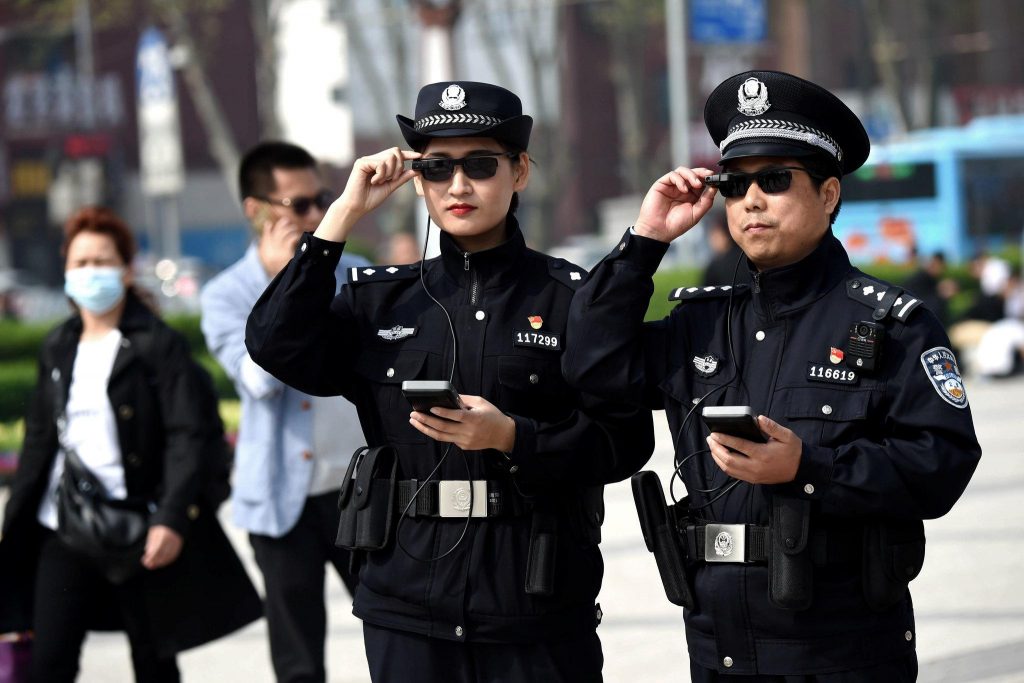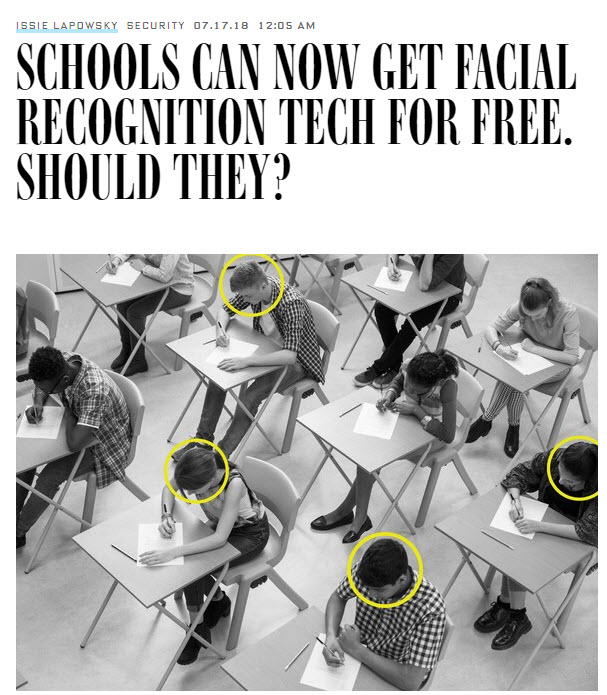Schools can not get facial recognition tech for free. Should they? — from wired.com by Issie Lapowsky
Excerpt:
Over the past two years, RealNetworks has developed a facial recognition tool that it hopes will help schools more accurately monitor who gets past their front doors. Today, the company launched a website where school administrators can download the tool, called SAFR, for free and integrate it with their own camera systems. So far, one school in Seattle, which Glaser’s kids attend, is testing the tool and the state of Wyoming is designing a pilot program that could launch later this year. “We feel like we’re hitting something there can be a social consensus around: that using facial recognition technology to make schools safer is a good thing,” Glaser says.
From DSC:
Personally, I’m very uncomfortable with where facial recognition is going in some societies. What starts off being sold as being helpful for this or that application, can quickly be abused and used to control its citizens. For example, look at what’s happening in China already these days!
The above article talks about these techs being used in schools. Based upon history, I seriously question whether humankind can wisely handle the power of these types of technologies.
Here in the United States, I already sense a ton of cameras watching each of us all the time when we’re out in public spaces (such as when we are in grocery stores, or gas stations, or in restaurants or malls, etc.). What’s the unspoken message behind those cameras? What’s being stated by their very presence around us?
No. I don’t like the idea of facial recognition being in schools. I’m not comfortable with this direction. I can see the counter argument — that this tech could help reduce school shootings. But I think that’s a weak argument, as someone mentally unbalanced enough to be involved with a school shooting likely won’t be swayed/deterred by being on camera. In fact, one could argue that in some cases, being on the national news — with their face being plastered all over the nation — might even put gas on the fire.
Glaser, for one, welcomes federal oversight of this space. He says it’s precisely because of his views on privacy that he wants to be part of what is bound to be a long conversation about the ethical deployment of facial recognition. “This isn’t just sci-fi. This is becoming something we, as a society, have to talk about,” he says. “That means the people who care about these issues need to get involved, not just as hand-wringers but as people trying to provide solutions. If the only people who are providing facial recognition are people who don’t give a &*&% about privacy, that’s bad.”

Per this week’s Next e-newsletter from edsurge.com
Take the University of San Francisco, which deploys facial recognition software in its dormitories. Students still use their I.D. card to swipe in, according to Edscoop, but the face of every person who enters a dorm is scanned and run through a database, and alerts the dorm attendant when an unknown person is detected. Online students are not immune: the technology is also used in many proctoring tools for virtual classes.
The tech raises plenty of tough issues. Facial-recognition systems have been shown to misidentify young people, people of color and women more often than white men. And then there are the privacy risks: “All collected data is at risk of breach or misuse by external and internal actors, and there are many examples of misuse of law enforcement data in other contexts,” a white paper by the Electronic Frontier foundation reads.
It’s unclear whether such facial-scanners will become common at the gates of campus. But now that cost is no longer much of an issue for what used to be an idea found only in science fiction, it’s time to weigh the pros and cons of what such a system really means in practice.
Also see:
- As facial recognition technology becomes pervasive, Microsoft (yes, Microsoft) issues a call for regulation — from techcrunch.com by Jonathan Shieber
Excerpt:
Technology companies have a privacy problem. They’re terribly good at invading ours and terribly negligent at protecting their own. And with the push by technologists to map, identify and index our physical as well as virtual presence with biometrics like face and fingerprint scanning, the increasing digital surveillance of our physical world is causing some of the companies that stand to benefit the most to call out to government to provide some guidelines on how they can use the incredibly powerful tools they’ve created. That’s what’s behind today’s call from Microsoft President Brad Smith for government to start thinking about how to oversee the facial recognition technology that’s now at the disposal of companies like Microsoft, Google, Apple and government security and surveillance services across the country and around the world.









